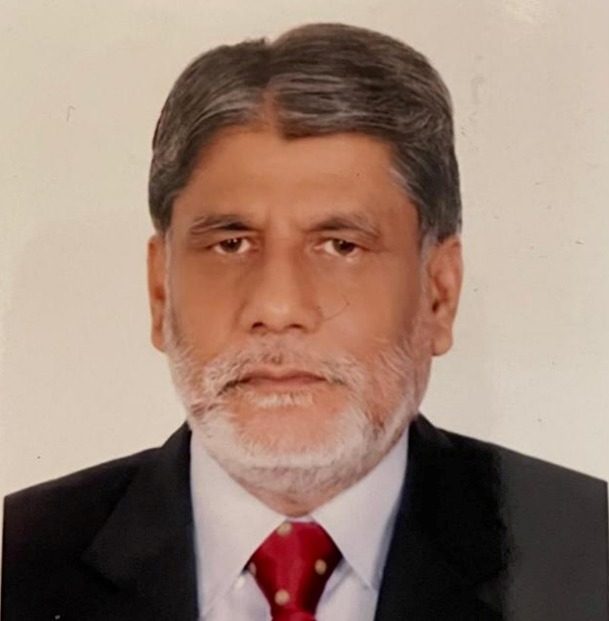
By Professor Dr Sheikh Akram Ali
Political wisdom is not a luxury. It is not a poetic virtue reserved for textbooks and speeches. It is the very substance of national survival, and Bangladesh’s history has repeatedly shown what happens when it is absent. From the hopeful cries of liberation in 1971 to the somber shadows of today’s unrest, the country has endured decades of missteps born not from ill will, but from a chronic failure of foresight. And the cost of this failure has always been borne by the people—those who have dared to believe in promises, voted in good faith, and fought, again and again, to be heard. What has passed for leadership in Bangladesh is too often a shallow performance of power. Real political wisdom—the kind built on patience, learning, and vision—has been treated as optional, even irrelevant.
And now, as the nation stares into the eyes of uncertainty, it is clearer than ever that this wisdom is no longer something we can wait for. It is something we must demand. In the decades since independence, successive governments have come and gone. The banners have changed color, the slogans have evolved, but the pattern has stayed disturbingly the same. Political parties have failed to nurture statesmen. They have failed to train young leaders who think beyond election cycles. With the exception of marginal voices like Jamaat-e-Islami and the Communist Party—flawed as they may be—most political forces have offered little more than power brokerage and reactive politics. Meanwhile, the people of Bangladesh have been caught in a cycle of disillusionment, forced to choose between the lesser of evils, rather than being offered genuine vision or care.
Why is it, then, that every crisis—economic, social or diplomatic—seems to come as a surprise to our leaders? Why do we continue to govern in the short term, as if the future is someone else’s problem? The truth is not comforting. The truth is that political leadership in Bangladesh has too often been divorced from reality. And the result is what we now see: an exhausted public, a disoriented state, and a swelling wave of unrest that feels dangerously familiar. Today, the stakes are higher than ever. The July 2024 uprising was not a blip. It was a warning. The people are watching. They have not forgotten. And they will not sit quietly while the same mistakes are made again. They are no longer fooled by loud voices with empty plans. They want leadership that listens. Leadership that learns. Leadership that loves the country more than it loves itself.
Yet what we see instead is a crisis at the top—a vacuum where wisdom should be. Decisions are being made not out of malice, but out of disconnection. Those who hold the reins of power seem unable, or unwilling, to see the ground beneath their feet shifting. Trust in political parties is evaporating. The national mood is one of suspicion, not solidarity. The people’s faith in institutions—parliament, police, even the courts—is eroding. In its place is a gnawing fear that the country is adrift, leaderless in a storm. And this is not just a domestic matter. The world is watching, and not with kindness. India’s deployment of Rafale fighter jets and the S-400 missile defence system along the Lalmonirhat border is not just a display of military readiness. It is a message—a cold and calculated show of pressure, an assertion of regional dominance cloaked in defence policy.
It challenges Bangladesh’s sovereignty, not through invasion, but through intimidation. And unless met with unity and resolve, it could further destabilize an already fragile political landscape. Are we prepared for this challenge? More urgently, are our leaders prepared? The answers are not obvious. Political maturity—measured not by age but by depth of understanding—is scarce. We hear talk of patriotism, of protecting the nation, but in practice, what we see is posturing, blame, and paralysis. The time has come to rise above the usual noise. Bangladesh must forge a path rooted in national interest, not personal ambition. The country needs leaders who can look past party flags and electoral timelines and see the whole picture—a nation yearning for stability, dignity, and justice. This is not to say revolutionaries hold all the answers either.
About recognizing that no single party or movement owns the idea of Bangladesh. The nation belongs to its people—not to bureaucrats, not to generals, not to ideologues. And if we cannot come together now, when the stakes are so clear, we may not have another chance. The geopolitical reality is also changing fast. The region is no longer dominated by a single narrative. The US-China rivalry, Russia’s renewed regional interest, and India’s assertive posturing all combine to form a volatile backdrop. Bangladesh, with its strategic location and growing population, is more important than it realizes. But importance does not guarantee security. That must be earned—and protected—by smart, inclusive, and courageous leadership.
(The writer is an academic in Bangladesh and can be reached at news@metro-morning.com)



